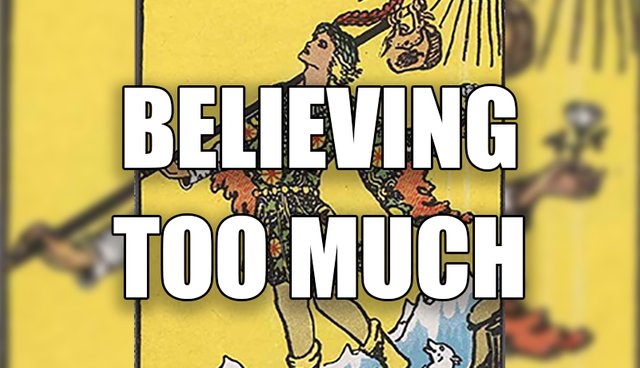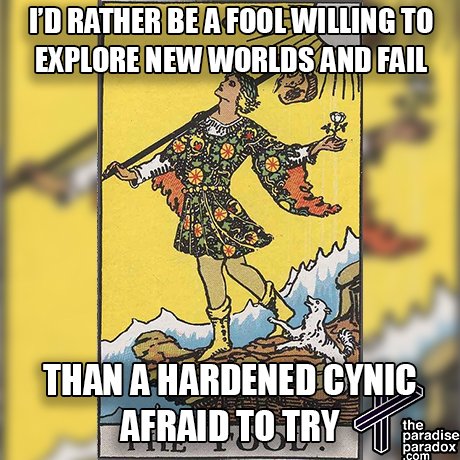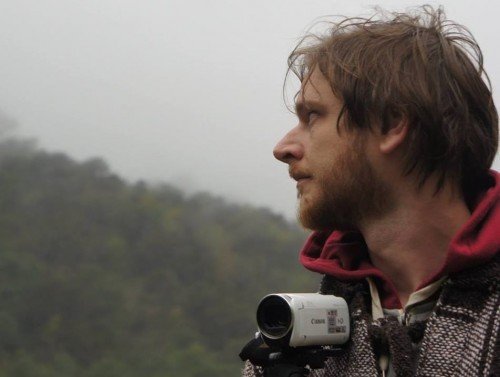Believing too much: In defence of credulity

The other day I wrote an article with the humble idea that: the case against homeopathy isn't as clear-cut as many believe it is. As I expected with discussing such a controversial topic, I had some people who supported my viewpoint and even made bolder claims, and some who were skeptical and added valid questions and criticisms (Thanks @baedric, @thecryptofiend, @aaanderson).
Then there were others who provided more baseless criticisms, such as one fellow on Twitter who told me to “stick to science fiction, because it's clear you haven't got basic science knowledge under your belt”. He failed to provide any more specific criticisms of my writing. Another fellow provided a "specific" criticism - the entire thesis. I don't think he was kidding. Yet another guy who provided similar comments obviously hadn't read the article very closely, and was apparently responding more to his own emotions than what I'd written.
If you asked them what kind of people they are, they'd probably tell you that they're rational, scientific, and skeptical people. But they're not.
Scepticism, pseudoskepticism, and credulity
Normally, I advocate looking at ideas and evidence on their own merit, and reserving any final judgement – what I might call “scepticism”, however, it is this attitude which leads many self-proclaimed “skeptics” to describe me with phrases like “infantile credulity”. In reality, these “skeptics” are pseudoskeptics, proclaiming to be interested in the pursuit of knowledge, but actually more interested in a kind of scientific fundamentalism, or “scientism”.
I don't think I am credulous, but in any case, I do think that pseudoskepticism is much more damaging to the advancement of human knowledge than credulity. Pseudoskepticism is dogmatic and cynical, whereas credulity is fluid, hopeful and curious.
Pseudoskeptics are cynics
The pseudoskeptics are really cynics, who are content to lock themselves in their boxes, refusing to come out and see what the world really might be like – even refusing to look at evidence.
Rupert Sheldrake tells a story about Richard Dawkins coming to Sheldrake's home to do an interview/interrogation for a new documentary. Sheldrake had previously emailed evidence of things such as telepathy, but when Dawkins arrived with the film crew, he hadn't read the papers, and said “I don't want to discuss evidence.”
Pseudoskeptics such as Dawkins assert that “If X is true, it will turn the laws of physics upside-down!” If that were true, anyone who really wanted to expand our body of knowledge would be eager to see the evidence. Anyone interested in maintaining the status quo would be keen to ignore it.
The credulous are hopeful
It takes someone really credulous to stand again after being defeated, and in spite of all evidence to the contrary, say “Yes, I can do this.” If you want to know who is more likely to change the world, look to a person who is ready to believe the impossible.
The credulous are curious
Thinking about all the people I've met, I've probably only ever interacted with one person who I would say was staunchly credulous, who refused to question their beliefs almost no matter what. Yet, I've interacted with thousands of “skeptics” who were staunchly “skeptical”, refusing to consider that they may be wrong in their dogmatic doubt.
Present an alternative solution to a pseudoskeptic, and they will say “That will never work.” Do the same to a credulous person, and they will say “Let's do it.” Tell a pseudoskeptic that you have evidence of something bizarre, and they may well refuse to look. Tell a credulous person, and they will say “Show me!”
Pseudoskeptics want to keep things as they are: certain, and stagnant, only changing in ways which they approve of. The credulous are willing to believe, and try, even to the point of not realising that they may fail. For that reason, the credulous walk a much quicker path to wisdom.
Extreme skepticism and extreme credulity
There are extreme cases of credulity, where people believe so much that their faith will heal them or that they can treat illnesses with alternative medicine even though it seems to be failing. That's probably true, though I don't think the cases would be common. How many cases of extreme “skepticism” have resulted in death, when someone refused to consider any type of medicine except the western mechanistic kind? How many cases of fatal liver dysfunction could have been treated easily by a qualified acupuncturist or nutritionist, but went untreated because of a lack of belief, or a lack of humility, a lack of wonder? We may never know.
It takes courage to believe
It doesn't take any courage to sit and criticise, to believe that others are wrong, and to maintain your certainty by ignoring evidence. It does take courage to believe in something, to be willing to hope, to try something new, and even to be wrong. To be credulous is much more in the spirit of human advancement, because to believe is to have courage despite disappointment, to have hope that there is magic in this world, and even to have the audacity to think that you can find it.
Too much faith
I intend to walk the middle path, attempting to understand new things, and questioning them to gain a fuller picture. But if I err, let it be to the side of believing too much, having too much hope, and too much faith. Let me never build walls inside my own mind so high that I refuse to explore the world, even if I do so recklessly or naïvely.

About me

My name is Kurt Robinson. I grew up in Australia, but now I live in Guadalajara, Jalisco. I write interesting things about voluntaryism, futurism, science fiction, travelling Latin America, and psychedelics. Remember to press follow so you can stay up to date with all the cool shit I post, and follow our podcast where we talk about crazy ideas for open-minded people, here: @paradise-paradox, like The Paradise Paradox on Facebook here, and subscribe to The Paradise Paradox on YouTube, and on iTunes


Nice post. I agree. I have encountered this a lot. It is the bane of trying to learn and share what we learn. The idea that we can learn from each other and all be students and teachers at the same time is difficult for some people to grasp. They assume they've gone to school enough, are old enough, or whatever other litmus test they have made for themselves and now they are the teachers and everyone else is the ignorant students they will lead to the light. The problem is... that is dogmatic, and might as well be religion.
Thanks. Yes, I wonder if it does have a lot to do with academia... The elitism that goes along with going to a good school might give people the pretence of knowledge. But I definitely remember that I knew people like that even in high school... I was probably one of them.
I have zero doubt I have been such a person before. I am not sure what snapped me out of it, but once I began to freely admit that I am likely wrong that is when I feel that the pace of learning increased dramatically. It is a lot easier to pickup knowledge if we don't assume we know it all before we listen.
Hi @churdtzu, I just stopped back to let you know your post was one of my favourite reads yesterday and I included it in my Steemit Ramble. You can read what I wrote about your post here.
Nice, much appreciated
Reminds me of one of my favorite quotes: "One of the most obtuse superstitions is the superstition of the scientists who say that man can exist without faith," Tolstoy, The Law of Love and the Law of Violence
Thanks for the call-out! I love exploring ideas, in fact the less I agree the more I want to see how much I can understand about the other view point. I am deeply skeptical, but in a epistemological sense, not a "science is truth" sense.
I included your piece in today’s #philosophy-review. Hoping to bring you more readers and discussion!
https://steemit.com/philosophy/@aaanderson/the-philosophy-review-12-8-2016
Thanks! That's a great way to think about it.
It always works well when you ridicule and call your opponents names.
Are you talking about me, or the critics that I mentioned? 😓
you decide.
I decide on ... Pikachu!
That's the lessons schooling and media teach these days. :) Ad-Hominem Ad-Hominem Ad-Hominem (imagine Tibetan throat chants as you read that)
Hi @churdtzu
Very nice post, thanks
Cheers